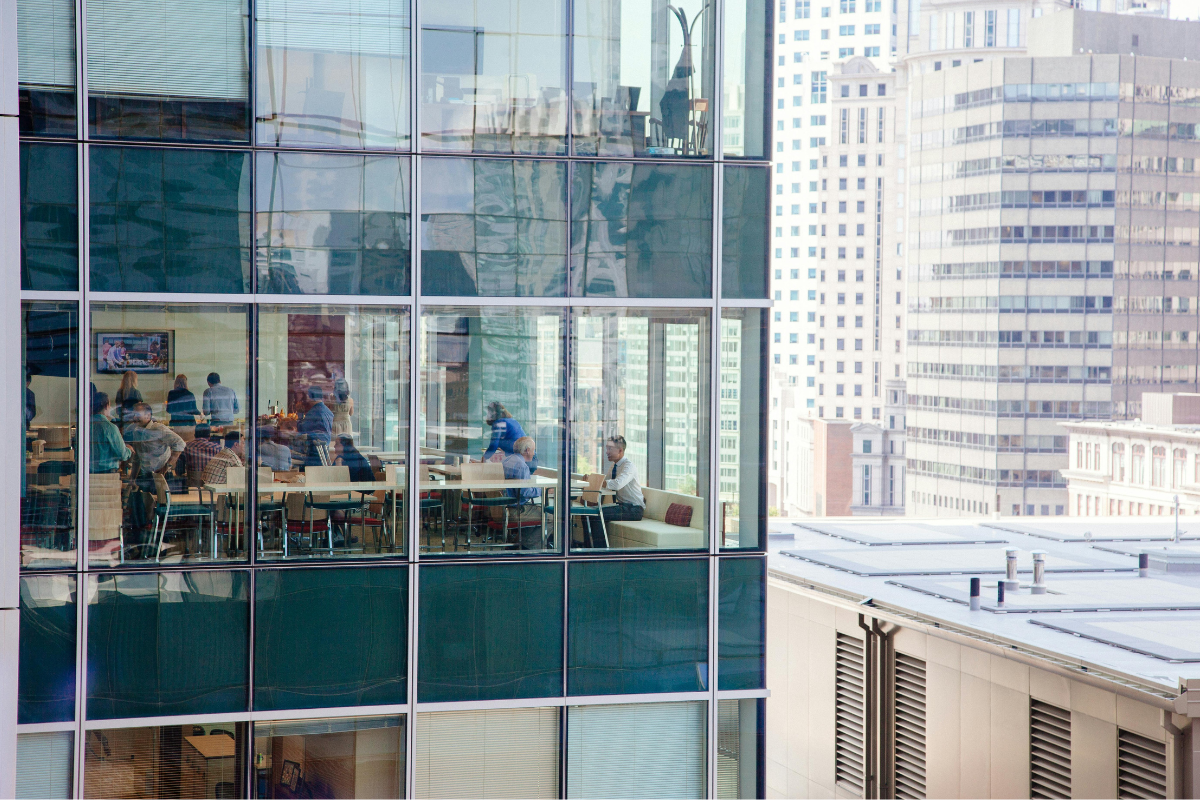
As work patterns shift and real estate use evolves, commercial properties are being redefined by unpredictable occupancy levels. This variability brings operational, environmental, and strategic challenges that require a more agile approach. Rather than reverting to default settings or legacy systems, your building must now respond intelligently to how and when it is used.
Karsons Consulting delivers informed support in this space by combining mechanical and electrical consultancy with data-led insights. This article explores actionable measures for maintaining performance and resilience in buildings with fluctuating usage, drawing on our experience across offices, residential blocks, and complex mixed-use assets.
When occupancy changes, energy use and building systems can quickly become misaligned. Spaces previously operating near capacity may now sit idle, while peak usage shifts to unexpected zones. Without a current operational picture, inefficiencies go unnoticed. This leads to higher utilities, shorter lifespan of assets, and missed compliance markers.
To address this, Karsons recommends conducting a targeted building performance review. These first steps typically include updated EPC assessments, thermal modelling, and zoning analysis; allowing for recalibrated strategies across HVAC, lighting, and water systems. Integrating these findings into your asset management plan provides the evidence base needed for decisions on energy optimisation and capital expenditure planning.
Occupancy variation affects how your systems perform. Legacy building services often operate in static modes, regardless of actual demand, leading to wasted output and poor system efficiency. In contrast, responsive infrastructure reacts in real time, improving both environmental control and energy outcomes.
Smart upgrades, such as decentralised HVAC control, demand-based ventilation, and adaptive lighting schemes, allow each zone to operate according to its current need. When implemented correctly, these technologies create operational flexibility and contribute directly to improved sustainability ratings. We’ve seen this approach succeed in commercial properties transitioning to hybrid working models, where system adaptability ensures comfort without overconditioning partially used areas.
Traditional maintenance contracts are rarely designed for dynamic occupancy. Planned preventive maintenance (PPM) schedules may result in over-servicing unused assets or neglecting those under increased strain due to reallocated use. This can affect both compliance and cost control.
Condition-based maintenance offers a more intelligent alternative. By monitoring the actual performance of building systems, using sensor data, runtime analysis, or engineering input, maintenance can be targeted where it is most needed. This reduces reactive call-outs, extends asset life, and avoids service interruptions.
Reduced occupancy often leads to changes in airflow, temperature retention, and internal air quality. However, lowering system output without careful recalibration can result in poor ventilation or increased humidity, especially in sealed environments. This compromises comfort. Buildings must maintain baseline air movement and filtration standards to ensure regulatory compliance and occupant health, even during periods of low use.
Retrofitting variable-speed fans, CO2 sensors, and zoning-based control systems enables property teams to maintain appropriate air changes without unnecessary energy consumption. These solutions are particularly valuable in mixed-use environments, where different occupancy patterns require independent control strategies. Karsons has supported numerous clients in optimising ventilation for part-occupied floors - often identifying opportunities to integrate air-source heat pumps or inverter-based control systems during interim upgrade cycles.
Adaptability is an essential design principle for buildings facing irregular usage. Traditional M&E systems, designed for consistent loads and uniform usage patterns, can struggle to accommodate sudden changes in tenant requirements, such as short-term leasing, hybrid working, or specialist occupancy needs.
By embedding flexibility through modular plant design, reconfigurable distribution layouts, or scalable controls, properties can accommodate these changes without major structural overhaul.

Periods of low occupancy present an ideal window to address compliance obligations and environmental improvements. Upgrades that are typically disruptive, such as lighting retrofits, air pressure testing, or asset lifecycle reviews, can often be executed with minimal disruption when the building is underused.
Karsons routinely helps clients take advantage of these windows to achieve higher EPC ratings, complete overdue inspections (e.g. TM44), or align with frameworks like BREEAM or BS 8555. These interventions not only support compliance but often unlock downstream cost savings through reduced energy bills and better system performance.
When occupancy changes, stakeholders (tenants, asset managers, or investors) may seek reassurance that the building remains compliant, efficient, and professionally managed. Regular, transparent communication is essential, particularly when changes are being made to core systems or services.
Karsons advises incorporating real-time reporting into your stakeholder strategy. Dashboards showing energy performance, maintenance activity, and compliance status can help reinforce trust and provide tangible evidence of due diligence. This transparency also simplifies tenant queries and supports investor ESG disclosures. By structuring reports to highlight cost savings, carbon reductions, and asset integrity, property owners can demonstrate clear value, even in the face of reduced footfall.
As the commercial landscape continues to evolve, buildings must be equipped to handle change without compromising on performance or compliance. The most successful strategies are those rooted in data, flexibility, and technical foresight.
Karsons Consulting brings deep expertise in mechanical and electrical engineering, sustainability, and building performance strategy, helping clients manage uncertainty with clarity and control. If your building is facing fluctuating occupancy and you’re unsure where to start, we’re here to help.
Let’s talk.
Karsons Consulting are members of the Chartered Institute of Building Services Engineers, The Association of Consultancy and Engineering, British Institute of Facilities Managers and the Building Services Research and Information Association.